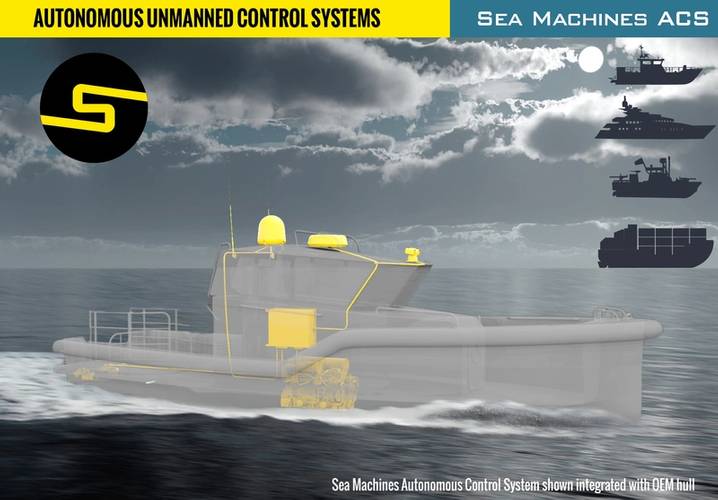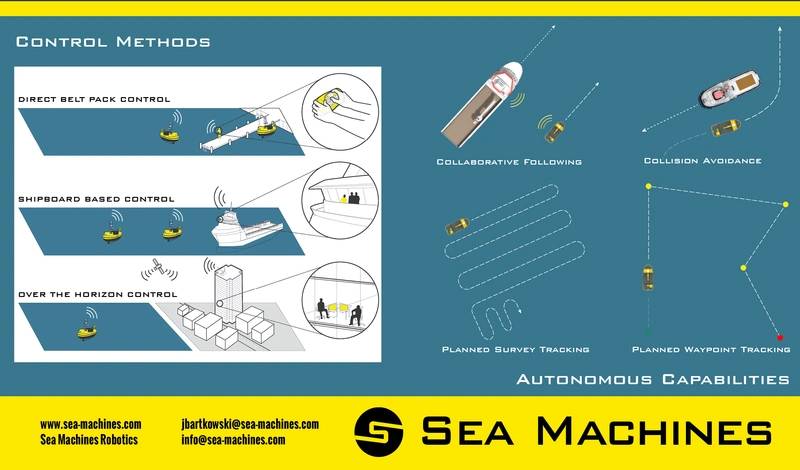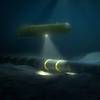Sea Machines Robotics of Cambridge, Mass. announced the release of its Autonomous Control System (ACS), an advanced vessel control system which converts manually piloted hulls to self-piloted Unmanned Surface Vessels (USVs). It is designed to be integrated into company-developed Sea Machine USVs or other commercial production hulls. The ACS allows for seamless transition between unmanned and manned operations and can be integrated into most OEM vessels, including workboats, pleasure craft, launches, fishing vessels, survey boats, tugs and more.
Sea Machines ACS is currently being offered for vessels up to 50 foot in length but can be enhanced for larger craft operations. The system works with various propulsion and steering configurations including electric, gas/diesel, diesel-electric, inboard, sterndrive and water jet.
The system incorporates water resistant (IP67) enclosures, with active liquid cooling, and industrial grade (-40° C to +85° C) components and PLC’s to allow for operations in harsh marine environments. Communication capabilities include Marine Broadband Radio and Hardened Wifi for Line of Site, high data rate applications, and VSAT and Iridium antennas for Over the Horizon and back up capabilities.
ACS is designed to be run from a mobile base station aboard a mother ship and will provide the operator with ability to mission plan, monitor and re-task the vehicle, along with live radar and video feeds. For Over the Horizon missions, the data stream is automatically parsed to meet bandwidth availability, prioritizing mission critical information. During docking, launch, and recovery of the vehicle, the ACS incorporates a tele-op belt-pack for direct control of the USV by an operator.
One of the primary applications of the Sea Machines USV's is Collaborative Following and Tandem Operations. Active communications and positioning algorithms allow the USV to mimic a motherships movements and lead, stand off, or follow at set distances, taking its commands based on the pilot induced movements of the mothership. Additional applications include AUV/ROV Tendering which utilizes the USV for subsea positioning and relay communications; Collaborative Multibeam Survey; CTD data collection; Station Keeping; Mobile Comms Platform; and Unmanned Acoustic Source.
















